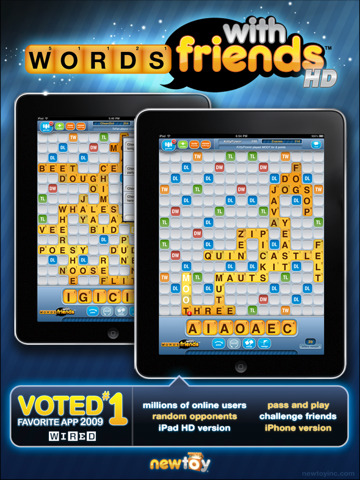


I am a big fan of Scrabble – I played it on a board until Facebook offered it online. So, I played it with absolute delight with my friends. Life got even more interesting when “Words with Friends” (a twist on Scrabble) was offered on the iPAD and iPhone. Now – I play with my friends, my children, with their friends, colleagues, my nephew and my sister in India.By now you should be asking “where do you have the time?” I don’t.
“Aren’t you working on your dream project?” Actually, I work all the time.
So when do I play? Whenever I have a few minutes – you don’t need hours like I did with a board. The way these online games work is that you play at your own pace. For example, if I have a few minutes between meetings, when I need something different to do, I can take a turn with whoever else has their game turned on at the same time.
Earlier this year when I was at the TED conference (I love this conference and I go every year) I was watching Jane McGonigal – a game designer – present on gaming and its value proposition. I know that there is a lot going on in this field for learning. The proposition is very simple – by the time gamers are 21 years-old they have played for 10,000 hours. Now we all know that there is literature on this concept “making of an expert.” 10,000 hours is the number of hours that people have to immerse themselves to become an expert. So, I ask what do these gamers become “experts” at?
McGonigal believes that gamers learn four main things from gaming:
- Urgent optimism
- Creating a tight social fabric
- Blissful productivity, and
- Epic meaning
I have a different view of gaming. Here’s how I think gaming and learning affect players:
- Excitement about the process – the appealing colorfulness, friendliness and fluidity all combine to produce an exciting process
- Unpredictability – “what’s coming next” produces endorphins that keep the excitement going
- “Fix it” mentality – the realization that this is not final and I can always restart and do it again
- “Face saving” – only I will see the outcome
- “Instant gratification” – both disappointing as well as rewarding, it allows me to keep going and fix it next time or at least have the chance to fix it
- “Repeatability” – I can do it again
The question is… is there really any learning going on? And what does this learning look like? Can we compromise with this kind of learning with the kind of learning that we have traditionally accepted as real learning?

